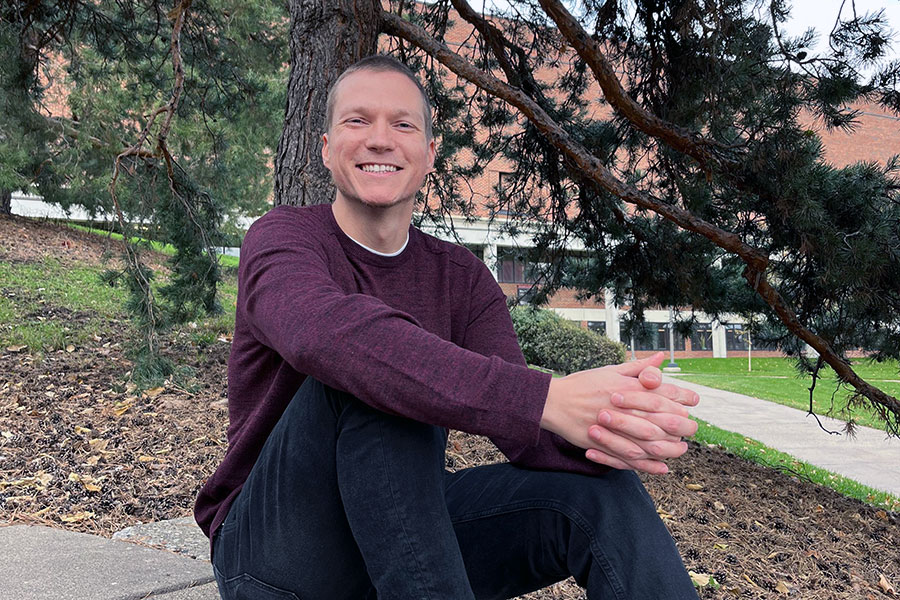
As a general manager of a hotel, Joe Krohn met a lot of people from diverse backgrounds and life experiences. For years, he thrived on these types of connections.
During the pandemic in 2020, he worked long days and began to see a side of society that he hadn’t really been exposed to before. “That is, substance use, homelessness, and mental health—people needing care and unable to obtain it,” he says.
“My work in the hotel industry did not allow me to provide the level of support that I wanted to. It did not allow me to make a difference in the lives of those who need it most.”
So Krohn decided to pivot and return to graduate school. He was looking for a pathway to “a more fulfilling and meaningful role,” where he could help people who had slipped through the cracks.
He soon found that pathway through the Master of Professional Studies in Integrated Behavioral Health program at the U of M's College of Continuing and Professional Studies. The program prepares counselors to treat clients with mental health, substance use, or co-occurring disorders. But his path was not a straight line. He stopped and started his undergraduate degree twice before earning a BS in psychology. “It has not been a perfect journey,” he says, “though I have come to learn that it does not need to be perfect. It just needed to be a journey that I wanted to be on.”
Years ago, Krohn faced his own mental health challenges and is grateful that he was able to pull himself out of the darkness.
“I felt like I had nobody to reach out to, nothing to live for,” he says. “Later, I learned that I was not alone, that we are never alone.”
Which is what put him on his current trajectory, drawn to the work, he says, because he doesn’t want anyone else to feel the way he did. “I have worked hard on moving away from a place of judgment and moving towards a place of curiosity, and I will continue to apply this approach as I build my clinical experience.”
Growing up in rural Wisconsin and navigating his own sexuality without a network of support, Krohn is also committed to helping the LGBTQ+ community as well as addressing depression and anxiety disorders, along with access to care.
“Having witnessed the effects of not having access to care, I want to explore ways to overcome or minimize barriers for others,” says Krohn.
Krohn currently works as a licensed alcohol and drug counselor in a facility that serves the LGBTQ+ population. Early on in this role, he had moments of self-doubt, as the reality of counseling real people sank in. Part of overcoming those challenges includes coming to know yourself, he says.
“A lot of this program is centered around reflection of self, to conceptualize the world around us, and to understand the clients we will be working with,” he says. “I have come to realize that to be effective in this field, you need a solid grasp on who you are and what you bring to a therapeutic relationship.”
Down the road, Krohn says he may want to teach or provide community education. Longer term, he thinks he might start a private practice or establish a nonprofit clinic to support the LGBTQ+ community.
This story was adapted from the original at the College of Continuing and Professional Studies.
- Categories:
- Health




